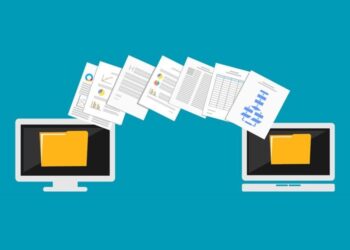Buying a new computer could cost you a chunk of your money. In that case, all you need is a used computer on a friendly budget. However, several risks come with used computers that may hurt the deal. Some of the most undesired dealbreakers are getting a subpar computer. Similarly, it would help to be vigilant to avoid getting conned or buying a used computer full of malware. What, then, should you look for in a used computer to get the best value for your money?
Here are the factors to consider when buying a used computer.
1. Safety
The primary aim of buying a computer is to appreciate the convenience of digital gadgets such as desktops, laptops, and tablets. Finding an exceptional deal enables you to experience an incredible time accomplishing your missions. However, an infected machine can end up being a liability instead of an investment. For example, it could lead to the loss of your sensitive files.
Malicious software, often summarized as malware is dangerous code embedded into the computer to harm you or your computer. Examples of malware are viruses, trojans, worms, spyware, and ransomware. They can delete your files, send them to the malicious user or transfer the computer ownership to an attacker. For example, spyware tracks activities you undertake on your newly acquired machine.
2. OS requirements
Still on software, it would help consider the software information of the used computer you are about to buy. Operating system versions usually differ in hardware and memory needs. For example, it is advisable to buy a computer with more RAM if you plan to run applications on the latest OS version efficiently. If the computer you are about buy has a lower version, it would cost an extra amount to upgrade your operating system.
For example, you would need to spend on a license to run the higher operating system. Then, you would require product keys to access the new features. That is why you should ask the seller to share with you the operating system’s product keys. Some operating systems would demand technical prowess to install and use. They would also need anti-virus, which could propel the computer’s cost in the long run.
3. Physical damage
It is advisable to examine the computer to ensure it lacks hardware issues. For example, the screen should lack scratches. It should possess a resolution higher than 1366 by 768. That will let you enjoy high-quality videos and images. It is recommended to use the computer for at least 20 minutes before buying it. Then, you can test for damage signs, such as noisy hard drives, massive booting time.
4. Usage
You should broaden your tests if you need a computer for dedicated services such as gaming. Here, you can check particular features, such as battery capacity and speed. You can verify if the machine charges comfortably and lasts long with power.
5. Price
One of the primary reasons for buying a used computer is to get a great deal at a pocket-friendly price. It would be best to check what the computer may offer to enable you to appreciate the value of your money. For example, the price should be way lower than that of the same type of new machine.
6. Trusted seller
Finally, you want to take your machine home. A trusted seller is reachable via online or offline media such as social media, calls, physical office, and website. It is advisable to check if the seller has sensational online reviews. For example, there should be proof that the seller gives refunds for the return of the computer with unexpected damages. That is when you should be vigilant to ensure you are not getting conned. An untrusted seller is likely to show signs such as rushing to complete the purchase.
Conclusion
Applying the above tips will enable you to save money without compromising on the quality of the machine. It would help deal with a trusted seller, check price, OS, and hardware before buying a used laptop.


































































































































































































